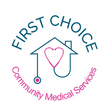Caregiving, as a duty, commends respect, albeit this responsibility can be physically and emotionally exhausting. As much as this act comes from a place of caring, as much as feelings of satisfaction can be present, caring for your loved one can cause feelings of worry, sadness, fear and grief.
This dual reality of being a primary caregiver to an elderly loved one can be overwhelming, act and seek professional counseling before you think you need it.
For the caregiver, symptoms of something deeper may arise. Some of these symptoms are; feelings of worthless, hopelessness, guilt, persistent fatigue, changes in appetite and/or sleep patterns, lessening feelings of pleasure in ordinary activities, isolating behaviors, excessive crying, and thoughts of death or suicide, please seek help immediately. Your health is paramount to the health of your loved one. If you experience symptoms that interfere with your daily life, please seek help.
“…Prioritize your caregiving responsibilities. Be realistic. Don’t feel you have to do everything yourself. Keep in touch with friends. Don’t isolate yourself. Ask for help. Often friends and relatives need you to identify specific ways they can be helpful. Acknowledge your limitations. Know when the stresses are becoming too much to bear and that you need to get your strength and your objectivity back. Educate yourself about the condition of the person for whom you are caring. Expect some decline and do not blame yourself for it. Allow yourself to grieve the losses that accompany illness. Rest, exercise; learn stress management and relaxation techniques, get enough sleep. Attend a caregiver support group, in person or online. Keep appointments with your medical providers. Do something special for yourself on a regular basis. Seek help when needed.” – the CAREGIVER'S GUIDE (Tri-Valley, Inc.)

